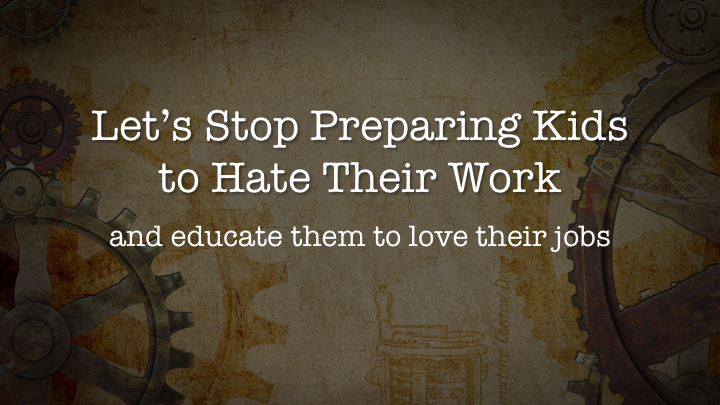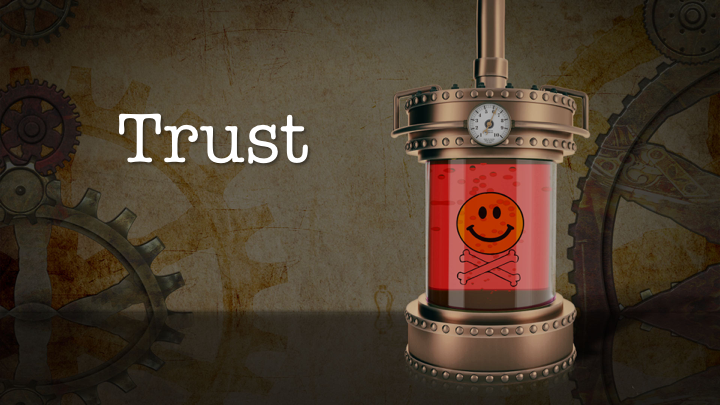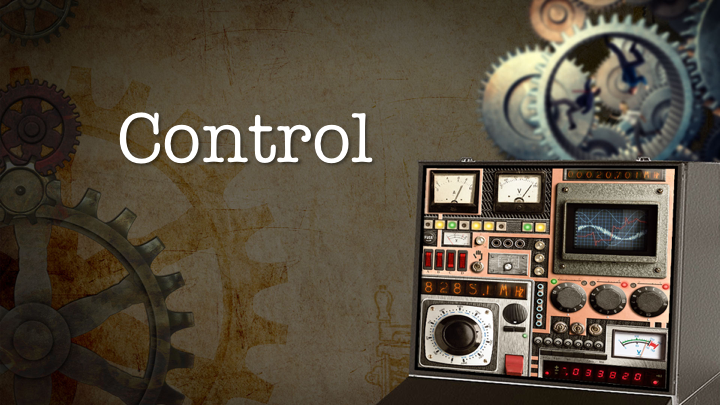This article contains a somewhat longer version of a TEDx talk I presented at TEDx PSUBerks on November 14, 2014. The chance to give a talk in this format was a great opportunity to for me to synthesize the different strands of my work over this past decade as an executive, an education advocate, and a mom. It let me get to the heart of what is most human for me inside our traditional institutions. And it was all inspired by the theme of a lovely TEDx: “Love and Education.” Videos from the event are being posted over time here. 4/20/2015 – Update: My video is now posted – see above. Unfortunately the sound quality is poor.
When my son was three, he did that thing. You know? Where he sat in a chair and started tipping it back on two legs? So what immediately came to my mind, of course, was “Stop That! You’re going to break your neck,” which would have been an overreaction, a lie, and really, an instinct to control my child for his own good and my peace of mind. So instead I got down to eye level with him, got his attention, and told him, “If you keep doing that there is a chance, a chance the chair will slip and you will fall down and hurt yourself.” I wanted him to have a realistic framework for thinking about risky behavior, and a framework for building trust.
My son and his sister are adolescents now and I worry about more than risky behavior. I worry whether the relationships they’re about to start developing are going to be healthy ones. I want them to feel deeply, in their bones, that respectful, accepting relationships are normal and that controlling, demeaning relationships are weird and wrong. So with far more love than know-how, I’ve stumbled through trying to raise them without all of the power imbalances that usually come with being a kid: They know it’s not polite for them to interrupt adults, but I’ve also taught them that it is not polite for adults to interrupt them. And that my desire to get the shopping done while I’m in the mood is no more valid than their desire to finish building that toothpick sculpture. So to whatever degree this philosophy may have had an effect, I may, I hope, have ruined my kids for controlling relationships
The Rat Race
I also want to save my kids from sacrificing their happiness to the rat race. Unlike so many people who hate their jobs, I want them to love what they do. But how do you prepare kids for that?
As it happens, this is something I know a little bit about.
I’ve spent most of my work life tinkering with making work suck less. And I can tell you that tackling the right problems to make that happen means doing something very difficult. We have to embrace multiple counterintuitive ideas and act on them. I’m going to talk about those ideas, but first I’m going to talk a little bit about myths about why we don’t love our work.
The first myth is that you have somehow failed because you have not yet found your passion and followed it. To me this is like the fairy tale of a white knight that swoops in on a charger and sweeps you off your feet and until then you should just sit and wait to be rescued. So simplistic! Relationships are complicated. Love – and passion – can grow in different ways with different people at different times in different ways. And although some people are blessed with career love at first sight, for most of us that’s something that develops over time. Of course once that passion has found us it becomes our guide to everything authentic in our work – but to make passion prerequisite to doing anything meaningful will likely, paradoxically, be the very thing that prevents us from finding it.
The second myth is that you will reach job satisfaction by simply doing what you are good at. But young people starting their career don’t know what they are good at – this is something we learn by doing different kinds of meaningful work. And it turns out most people are good at more than one thing. And that we can become good at many things through intentional practice and hard work.
The third myth, which is sometimes true but usually not, is that your boss is the problem. Most of the time, your boss is as trapped by your work’s culture as you are and doing her best given the incentives and constraints on her own position.
And there are lots of beliefs about specific things that are missing from work environments that really boil down to the fact that most work environments are structured to make it almost impossible for us to love what we do.
Trust
Workplace dysfunction – the structures and cultures that make it almost impossible to love our work arise from the simple premise that we cannot be trusted.
Most people hold this prejudice, not just about others, but about themselves. High school students report that they wouldn’t study if someone didn’t make them, and employees believe they wouldn’t go to work every day if they didn’t have to earn a paycheck. You might believe that about yourself right now. But it’s this intuition that can’t be trusted!
Netflix is just one of a handful of companies that has instituted a policy of “endless summer” – unlimited paid vacation and sick days. You might think people can’t be trusted and would work less at such a place, but people who have endless summer end up taking about the same time off as people who don’t. Netflix gets essentially the same result without all that control. Netflix has chosen to trust its employees, but most companies believe they have to control them.
Control
How do organizations control people? By rewarding success and punishing failure. But to do that, you need to give people assignments that are simple enough that you can tell if they’ve succeeded or failed. So organizations turn into factories for decomposing business problems into manageable chunks that are sufficiently unambiguous that its easy to measure success. Employees start to look like interchangeable parts, and the organization believes it can get better and faster by simply offering them incentives.
This “ factory metaphor” of work evolved when human labor was used for rote tasks, such as on an assembly line, but it breaks down when we apply it to most of the work that happens in this century.
First. There is an implicit assumption that modern work is linear, that business problems are isolated, that there is exactly one best, or most efficient way, to get work done, and that every job can be decomposed at each level of the hierarchy into smaller steps to be handled by the level below. The reality is that modern business is incredibly complex with deeply interrelated business goals and issues in a constantly changing environment. What happens in one small part of the organization can have a huge impact on a completely different part.
Second. There is an implicit assumption that rewards and punishments increase employee performance. But today we know that while this can be true for rote tasks such as assembly line production, it is not true for modern work. For the work that happens in organizations that requires creativity, innovation, or divergent thinking, rewards actually decrease performance.
One of my heroes, Dan Pink, has done an amazing job of popularizing this research and pointing out what he calls the “mismatch between what science knows and what business does”. Like most people, I’ve experienced that mismatch. I think most of us have experienced that mismatch in the form of that boss – You know that boss – he’s the one who believes in control (and maybe likes it a little too much.) He is convinced the way to motivate people is with carrots and sticks.
I. Have. Also. Been. That Boss.
But there is little dignity in controlling people, and for me it was an acute sense of that indignity that forced me to look at how leadership by control warps corporate culture.
Rewards
It starts by making rewards scarce. Rewards like money and promotions become the only ones that have status, while abundant rewards like authentic respect and true accomplishment don’t count. I can’t tell you how many times I’ve sat across the table from an amazing young professional (or an experienced professional) who has confused his value with his status and heartbreakingly believes that if he doesn’t get that promotion or the big raise, he is without worth.
When rewards are scarce, employees are in a zero-sum game where their colleagues are in a sense their adversaries. People often are literally in competition for their raises, promotions, or even their jobs with the very people they rely on to be able to do their work effectively.
Politics become rampant – people spend most of their time behind closed doors complaining about unfairness, how they didn’t get the promotion they deserved, how the person who got the best rewards wasn’t really all that great, how the bosses just don’t understand what it takes to really make things work, how the leadership is blindly going in the wrong direction and how, ”If only I were in charge and everyone would just do as I say, things would be so much better.” Because it becomes impossible to question that someone needs to be in control and hand out the incentives – the only question becomes who it should be.
But most tragically, work becomes fake. Fake work looks like endless meetings where no real progress is made but responsibility is diluted and risk is reduced. It looks like more time spent on negotiating accountability between departments than on doing the work they are accepting responsibility for. It looks like insane amounts of time spent on people management.
Employees become conditioned to believe that if only they were good enough to deserve the organization’s proxy rewards, they would be happy. But the modern research on happiness is pretty clear: above a fairly low threshold, more money or different external circumstances like raises, promotions, or even winning the lottery have only a transient effect on happiness. Which for most of us is even more counterintuitive than the idea that we can be trusted.
Counterintuition
Let’s briefly recap the counterintuitive realities we’ve covered. (1) We can be trusted. (2) Rewards decrease performance. (3) Rewards don’t make us happy for more than short while. And I have one more for you: (4) Rewards can actually eliminate enjoyment of the things that you love. So if you love to code, for example, having artificial targets with huge bonuses attached can turn your passion to a chore, at least in that environment.
So what are the alternatives?
Emergence
The balance to hyper-rational organizations are self-organizing environments. Instead of the factory metaphor, we can understand these environments through the metaphor of emergence.
Emergence happens when we get beautiful, complex results from simple rules – like birds flocking. In a self-organizing environment, three simple rules are in place: encourage autonomy, support the development of mastery, and collectively create meaning. (These are derived from the drivers of intrinsic motivation)
And in my own experience, self-organizing teams develop, as a side effect, the very things that most businesses try to achieve through control. Things like engaged hard work, creativity, cross-functional collaboration, networked communication, loyalty, initiative, judgment, and startling organizational agility and capacity for learning and growth.
Employees are trusted with a lot of freedom and responsibility, which leads them to a wide range of experiences and the kind of systems thinking that bridges silos and attends to goals beyond the performance evaluation checklist. It lets them see lets them see how what they do in one part of the organization has a ripple effect to other parts and they solve problems in context. They have wide latitude in learning what they love to do, what they are good at, and contributing in a variety of unique and even surprising ways.
Employees tend to fall in love with their jobs…or to authentically discover their path really lies elsewhere. Politics more or less disappear. Management is replaced with light-weight mentorship.
Now admittedly, my examples come from high tech, but what about less glamorous jobs, what if you make your living on a real, not a metaphorical assembly line?
Ownership
One word: Kaizen. This is a practice seen on Toyota’s assembly lines. Every employee is asked to “think like an owner.” Employees have the power to stop the assembly line at any time or to suggest changes to any part of the process. From the outside it still looks like an assembly line – American companies who travelled to Japan to learn the Toyota way could watch it all day and still not understand what was actually happening, because the real difference was a shift in attitude on the part of every employee and a shift in values on the part of the company. This is an organization that knows how to practice trust and to reap the benefits of human dignity.
Taking ownership is just one of a handful of practices you find in the “new work” and can only happen in organizations where trust is practiced. Today we see this in a small number of corporate environments and more frequently in freelance situations. But I do suspect that someday it will become mainstream. If it does, I’m not sure we’re going to be ready?
My experience with hiring people into a self-organizing environment is that for many it takes a long time to adjust – people have literally lost the knack for knowing for themselves when they are doing real and meaningful work and when they are just trying to game the system for raises and good reviews – and for a long time they need others to explicitly point out what it is about their work that is authentic. And some people never adjust at all.
I don’t want my children, I don’t want anyone’s children, to grow up to feel uncomfortable in a trusting, self-organizing environment. I want them to be confident, creative, collaborative, self-directed, effective members of teams and inspired individual contributors. To know that it’s ok to do things for the sheer love of it without ever becoming great. To look clearly at the quality of their work without conflating that with their effort or with their self-worth. To contribute generously, both personally and professionally, whenever they have the opportunity but without sacrificing their own needs.
I don’t know whether my aspirations for them will be fulfilled, but in the back of my mind I have this fear that if they are, my children will be ruined for “the old work.” They may never be able to tolerate a dysfunctional “company man” type of job and they might not be able to find one of those rare self-organizing environments.
Still, my intuition is that a child who learns to connect with her intrinsic motivation, to see her worth in terms other than the approval of others, and to love learning and working in at least one area, is likely to be at least somewhat inoculated against the soul-warping effects of dysfunctional work environments.
In truth, I suspect that instead of being unable to tolerate most work places, she would be an island of sanity who doesn’t buy in to workplace politics as life or death. But even if not – I’m willing to ruin my kids for controlling relationships. To not trade their happiness for security. Perhaps it’s ok if I ruin them for certain kinds of work environments as well? Perhaps?
School
So then what about schools – the place that is supposed to prepare my kids for college and workplaces? The factory model of schooling prepares kids for the old factory model of work. Schools seem almost designed to drive out intrinsic motivation. Grades come to take the place of the intrinsic rewards of learning. Learning tends to become fake – more about memorizing stuff to pass tests than learning to think. And kids focus on the rewards, not the learning: and you know this is happening when they start to say things like: “Will this be on the midterm? How many words do I have to write? Can I get extra credit?”
And yet there are examples of models for schooling that practically demand that students take ownership – like Montessori. There’s a lot of trust in a Montessori classroom. There is not a lot of Montessori in public school.
In my current work I am lucky enough to get to talk to a lot of teachers and administrators who are struggling towards a different way of teaching and learning by using technology. It happens in many different ways – and it seems as though it’s actually the freedom to experiment that has been the catalyst – but teachers get to a point where they say, “I could never, ever go back to teaching the old way.” Something important has shifted in them, and when you look closely, the real change is much like what happened at Toyota – they’ve given up a lot of control to their students, making their traditional classrooms feel more like the Montessori side of the spectrum. And even though both they and their students may find themselves working harder than ever, often it hardly feels like work to them, but more like “hard fun”.
Because they’ve learned to practice trust, their students have learned to take ownership. And that ownership and trust – if we let our kids discover them – are what will prepare them not to hate their work, but to love what they do and do the many things they love.
Thank You.











